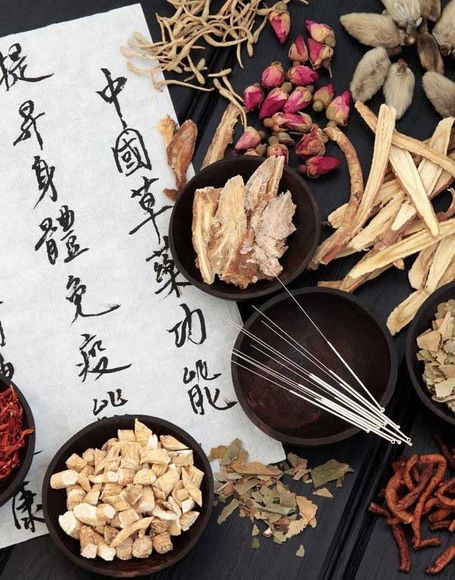ACUPUNCTURE & CHINESE HERBOLOGY

How it Works
Chinese medicine is a complete medical system that has diagnosed, treated, and prevented illness for over twenty-three centuries. While it can remedy ailments and alter states of mind, Chinese medicine can also enhance recuperative power, immunity, and the capacity for pleasure, work, and creativity. Within Chinese cosmology, all of creation is born from the marriage of two polar principles, Yin and Yang: Earth and Heaven, winter and summer, night and day, cold and hot, wet and dry, inner and outer, body and mind. Harmony of this union means health, good weather, and good fortune, while disharmony leads to disease, disaster, and bad luck. The strategy of Chinese medicine is to restore harmony. Each human being is seen as a world in miniature, a garden in which doctor and patient together strive to cultivate health. Every person has a unique terrain to be mapped, a resilient yet sensitive ecology to be maintained. Like a gardener uses irrigation and compost to grow robust plants, the doctor uses acupuncture, herbs, and food to recover and sustain health.
Organ Networks
Liver, Heart, Spleen, Lung, Kidney, as Nature is organized by five primal powers - Wood, Fire, Earth, Metal, Water - so the body is divided into five functional systems known as Organ Networks. These Networks govern particular tissues, mental faculties, and physical activities by regulating and preserving Qi, Moisture, Blood, Spirit, and Essence. For example, the Kidney Network includes yet extends beyond the job of managing fluid metabolism which we in the West ordinarily associate with the kidneys. The Kidney stores the Essence responsible for reproduction, growth, and regeneration. It controls the teeth, bones, marrow, brain, inner ear, pupil of the eye, and lumbar region, and is associated with the emotion of fear and perception. So problems such as retarded growth, ringing in the ears, infertility, low back pain, paranoia, fuzzy thinking, weak vision, apathy, or despair are viewed as dysfunction's of the Kidney Network. The Heart not only propels blood through the vessels, but harbors the Spirit and governs the mind. Symptoms as varied as anxiety, restless sleep, angina, and palpitations occur when the Heart is agitated. The Spleen is in charge of the assimilation of food and fluids, as well as ideas, so when this Network is disturbed, indigestion, bloating, fatigue, scattered thinking, and poor concentration ensue. The Liver is responsible for the storage of Blood, flow of Qi, and evenness of temperament so when the Liver is thwarted, tension in the neck and shoulders, high blood pressure, headaches, cramping, moodiness, and impulsive behavior may follow.

Acupuncture
Acupuncture is based on the assumption that Qi courses through channels in the body just as streams and rivers ebb and flow across the surface of the earth. Every organ Organ Network has a corresponding set of channels. The acupuncture points are located in small depressions in the skin called "men" or "gates" where the channels come closest to the surface. In ancient times, when cities were fortified by walls, gates were opened to receive sustenance and closed to keep harm away. With acupuncture, the gates of the body are opened and closed to adjust circulation in the channels and expel noxious influences from them. Thin, solid, sterile stainless steel acupuncture needles are inserted into acupuncture points to communicate from the outside to the inside. Acupuncture mobilizes Qi, Moisture, Blood, invigorating proper function of muscles, nerves, vessels, glands, and organs.
Body Constituents
Qi, Moisture, Blood, Spirit, Essence, just as Nature contains air, sea, and land, the human body is comprised of Qi (pronounced chee), Moisture, and Blood. Qi is the animating force that gives us our capacity to move, think, feel, and work. Moisture is the liquid medium which protects, nurtures, and lubricates tissue, Blood is the material foundation out of which we create bones, nerves, skin, muscles, and organs. Human beings intermingle psyche and soma, Spirit (Shen) and Essence (Jing). Shen is the immaterial expression of the individual; and Essence represents the body's reproductive and regenerative substance. Chinese medicine appreciates the impact of the unseen upon the visible. Even though it is impossible to touch or measure thoughts or emotions, they are acknowledged and inextricably linked to physiology.
Body Climates
Wind, Dampness, Dryness, Heat, Cold, in Nature, extreme wind, dampness, dryness, heat, and cold wreak havoc in the world. These same forces can derange balance within the human body, weakening or obstructing the movement of Qi in the organs. As winds shakes the trees of the forest, disassembling leaves and branches, internal Wind manifests as vertigo, unsteady movement, and trembling. As saturated earth generates swamps, so Dampness becomes phlegm and edema in the body. As aridity withers vegetation, so Dryness causes chapping or cracking of mucus membranes. Just as ice inhibits the rush of water in a winter stream, so internal Cold retards circulation and depresses metabolism. And just as fire scorches the earth, so internal Heat may inflame tissue.
CHINESE HERBOLOGY
Chinese Herbs have been used to treat all sort of ailments and imbalances for centuries. Contrary to Western Medicine that focuses on symptoms, a Chinese Herbal Formula looks at the whole picture of the patient: what is the root cause of those symptoms?
Used correctly, Chinese Herbs that have been recommended by a qualified practitioner are very safe and go through a strict GMP certification. It is important to know the origin of those herbal formulas. We only use herbs from reputable suppliers. The use of Chinese Herbs compliments and enhances acupuncture treatments.




